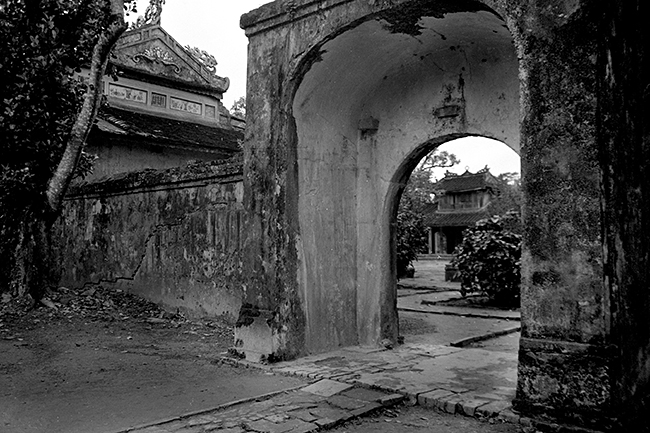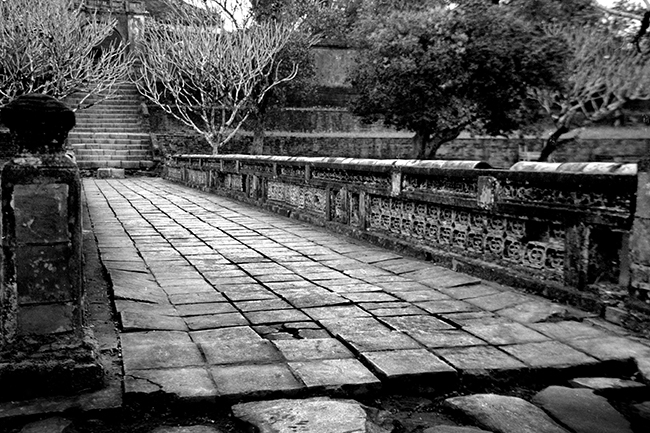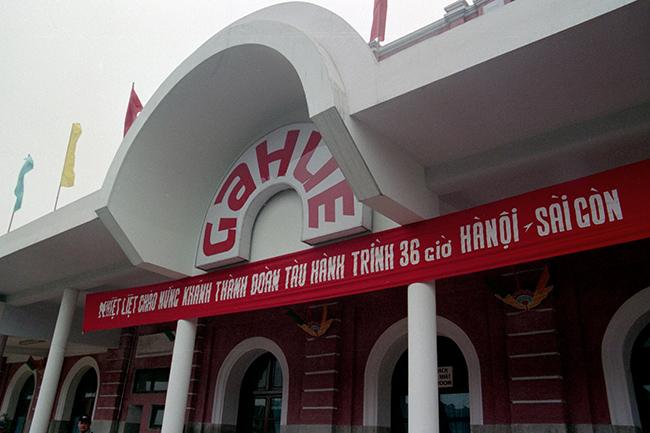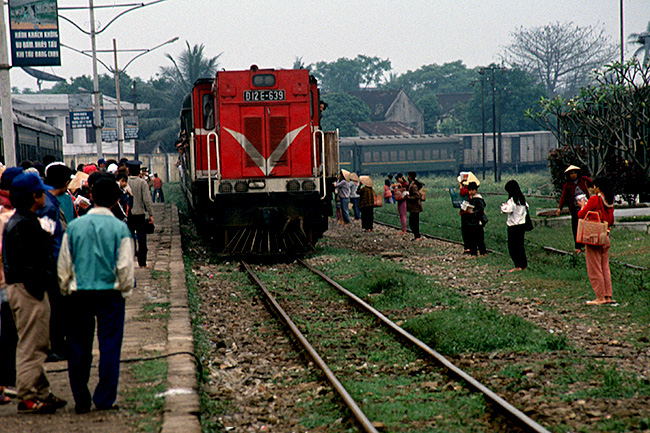Da Nang to
Hue
|
Marble Mountains
Five hills, formerly islands comprised of marble and limestone. Each is
named for one of the universal elements of fire, earth, water, wood and
metal. It was French geologists who coined the name Marble Mountains
when they discovered they are a source of red, white and blue/green
marble. The mountains
are riddled with caves and temples and we were looking forward to hours
of climbing and exploring. Unfortunately it was not to be. We only
got to see the Linh Ong Pagoda |
|
| |
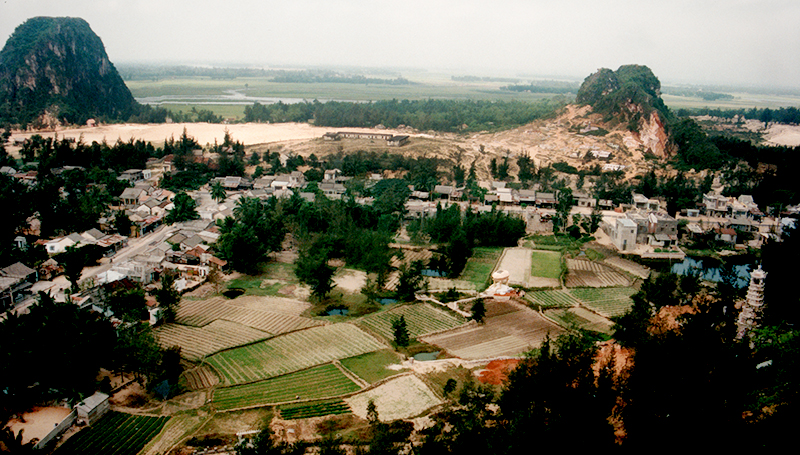
|
Having been
so graciously welcomed everywhere we went it came as a shock to find our
path to the entrance blocked by rapacious hawkers. It was
impossible to pass so we turned around and headed back to our bus.
This provoked a tirade of curses which our Vietnamese guide
unfortunately translated for us |
|
|
Linh Ong Pagoda
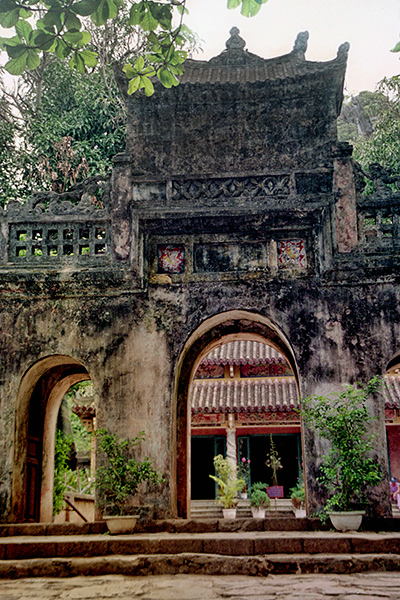 |
China Beach
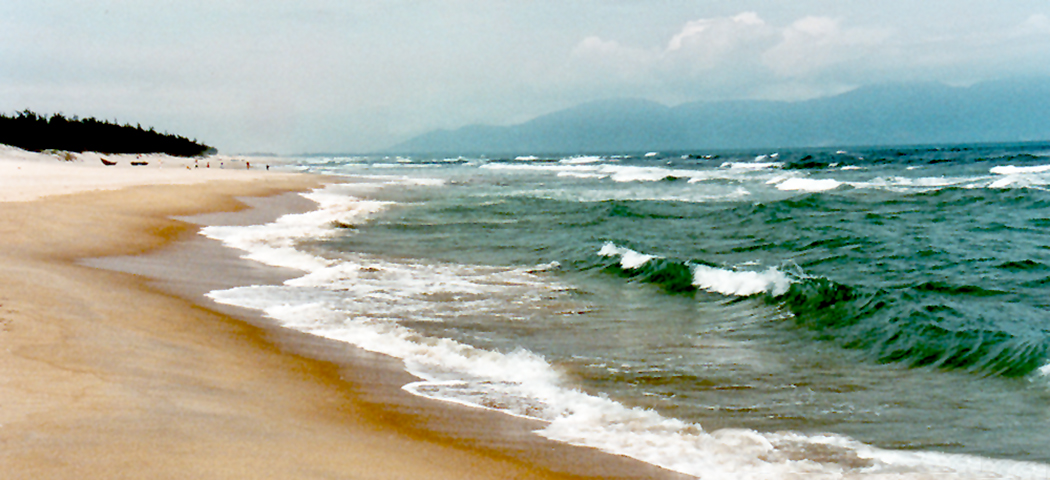
| The former
R&R beach of choice for G.I.'s was a much needed oasis of calm this
day |
|
|
The Ancient
Imperial City of Hue
Comprises a
moated outer Citadel, the Imperial Enclosure, where all the ceremonial
events took place and the Forbidden Purple City
| |
|
Of the
original 160 buildings only 10 survived the Tet Offensive of 1968.
Under the aegis of UNESCO, restoration began in 1993 |
|
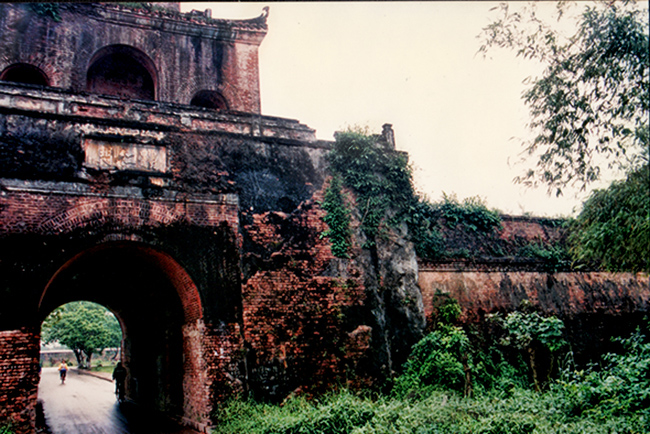 |
|
Ngo Mon Gate topped by Ngo Phung Hall,
patiently awaits it's turn to be renovated |
|
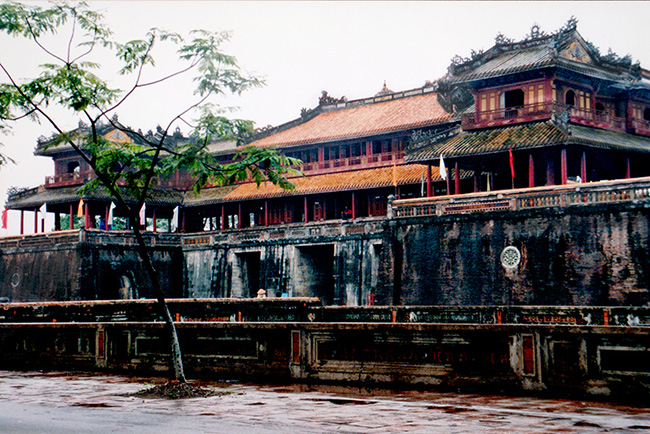 |
Of the original 160 buildings only 10 survived the Tet Offensive of 1968. Under
the aegis of UNESCO, restoration began in 1993
| |
|
Amid the
ruins and the vegetable plots of the Forbidden City is the partially
restored two storey library |
|
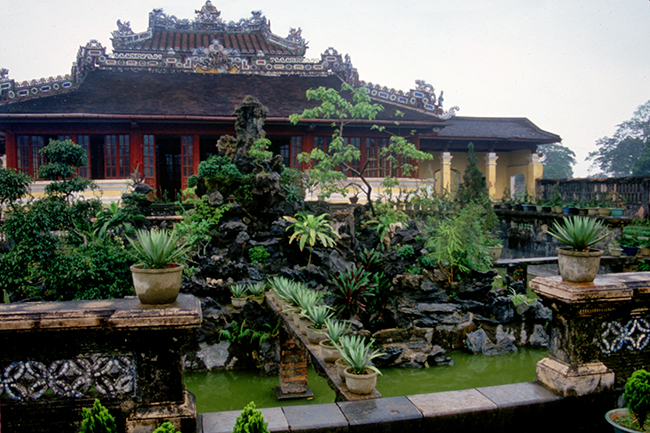 |
|
The nine
Dynastic Urns, one for each Nguyen Emperor. Standing in front of
Hien Lam Pavilion |
|
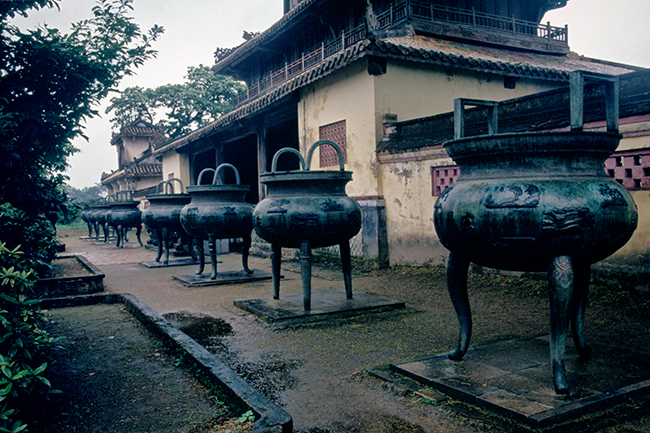 |
| |
Library
detail. The finished renovations at the Imperial City are
magnificent |
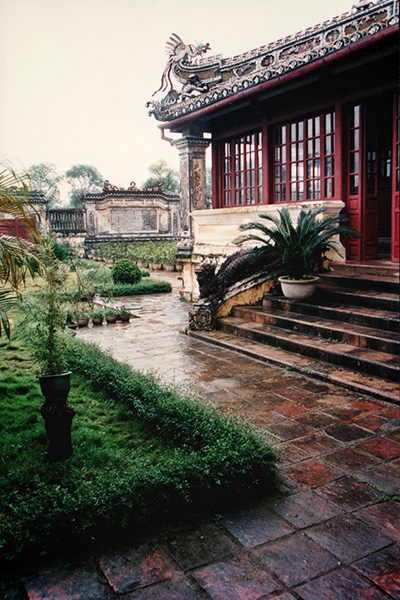
|
| Gateway
Purple Forbidden City home to the last Emperor Bao Dai and his family |
|
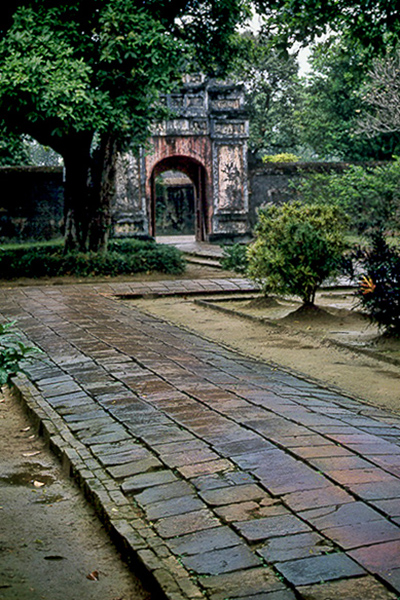
|
|
Largest of
the Dynastic Urns dedicated to Gia Long the founder of the Nguyen
Dynasty |
|
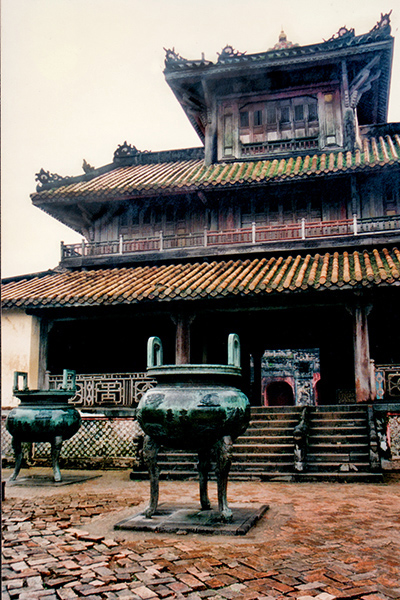 |
It was at the
Thai Hoe Palace in the Imperial Enclosure, that Emperor Bao Dai
abdicated to Ho Chi Minh's delegation in 1945
| |
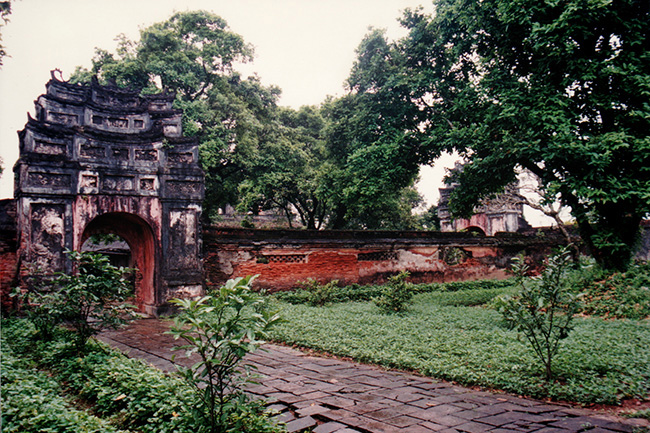
|
To see the
current state of renovation go to UNESO's website and be prepared to be
wowed |
|
|
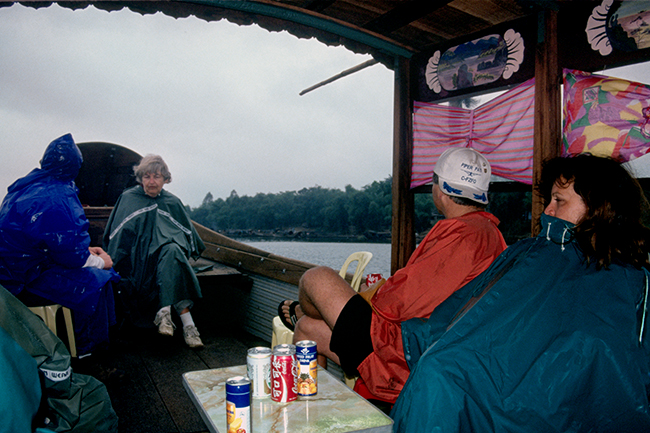
|
Despite the
worsening weather we set off on our trip up the Perfume River to the 7
tombs of 9 Emperors |
|
|
|
Thien Mu Pagoda of The Celestial
Lady
|
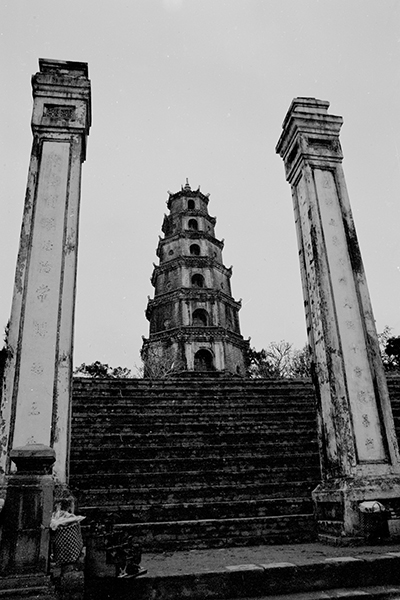
|
| Tomb of Emperor Mhin Mang
Honour courtyard with honour guard & path to his tomb |
|
|
|
We elected to
head back to Hue, the weather was making it impossible to enjoy the rest
of the tombs. It was also the day I decided in future I
would travel independently with enough time scheduled to allow for
changes along the way. Even if it meant going alone |
|
The Reunification Express
The station,
and engine exceeded expectations. The carriages, not the Orient
Express but adequate. The route, built by the French in the 1880's
|
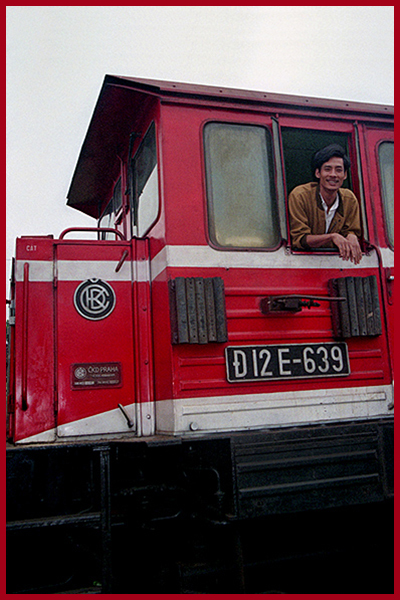
CKD Praha D12 E - 639 (1985-2000) |
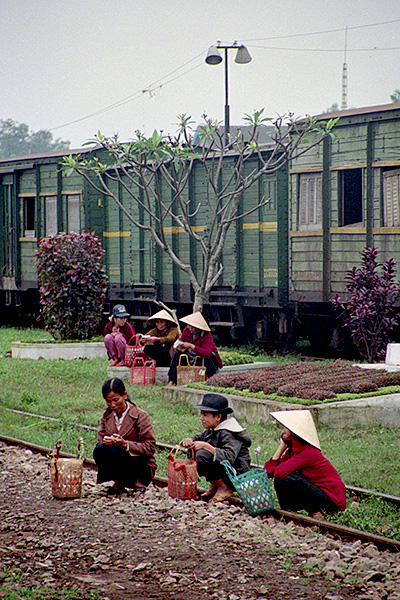
The food vendors patiently waiting |
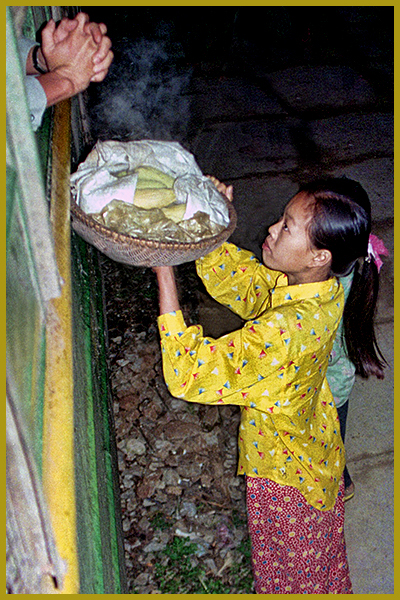
And at every other stop to Hanoi |
|
With the U.S.
not an option and Russia definitely persona non grata, Czechlovakia
stepped up, building and supplying DC12 diesels engines designed specifically for hot humid climates.
As of 2016 D12 E - 639 was still in operation although no longer on the
prestigious reunification route |
|
 The 'ponds'
seen from the train are courtesy of the US Air Force and are still used
by villagers in some rural areas for rearing fish and ducks |




